I'm developing an android application using kotlin and the Android Studio auto completion menu is showing this (I'm elaborating a server response)
As you can see message and status are two strings, but one is the first is marked as String! and the other one as String, but I don't get the difference
I tried to check in the (java) source code and status is marked as @NonNull, while message does not have any annotation, but if the String can be null in this case in kotlin I should access to it using the !! operator and it should be marked with ?, not with !, because it would be of type String?.
What is going on here?
